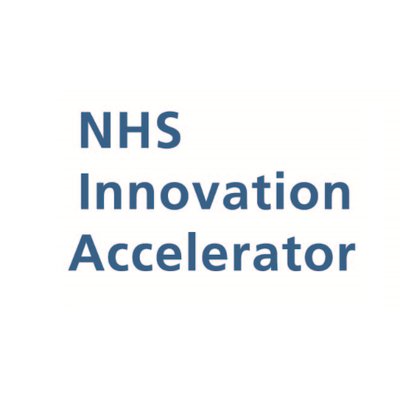The key conditions essential for the adoption and spread of innovations in the NHS have been identified in an independent evaluation of the NHS Innovation Accelerator (NIA), published by the Institute for Employment Studies (IES).
The evaluation, conducted by IES in partnership with researchers from York Health Economics Consortium (YHEC) and funded by The Health Foundation, highlights the impact of the NIA in encouraging greater uptake of healthcare innovations and bringing positive outcomes for patient and population benefit.
The NIA is intended to help create conditions and cultural change to generate faster and more systematic take-up of healthcare innovations across the NHS. The evaluation identified the common conditions essential for adoption and spread of healthcare innovations, as well the key barriers, challenges and how to overcome them. In doing so, the report offers valuable insights for health innovators and entrepreneurs hoping to scale innovations. These innovations could in turn lead to NHS service improvement and wider benefits to global healthcare as innovations scale internationally.
Several conditions for successful healthcare innovation scaling were identified in the report. Having a supportive network of contacts that can open doors to key influencers and patient involvement were crucial enablers for all innovations. Likewise, harnessing insights of mentors, expert networking and demonstrating how innovations support national and local agendas among NHS users were also highlighted as key conditions for success. Overcoming barriers to innovation diffusion in a challenging financial climate requires an agile mindset, a willingness to revise and adapt innovations, and skills in engaging clinicians to persuade them of the benefits.
The report offers conservative estimates of the potential for significant savings to be made to the UK’s health and social care system, drawn out in the evaluation’s economic impact assessment. These savings may be generated through reduced incidence and demand on healthcare, lower administration costs, prevention of ill health, and reduced GP visits and A&E attendance.
The NIA is an NHS England initiative delivered in partnership with England’s 15 Academic Health Science Networks.
Commenting on the findings of the evaluation, Professor Sir Bruce Keogh, Chair of the NIA Programme Board, said:
“The innovations supported as part of the national NHS Innovation Accelerator have had an incredible impact on the NHS and the people it serves. The savings to England’s health and care system are just the beginning. As the Accelerator grows and its innovations continue to spread, we will see greater benefits to quality and costs of care, more equal access to healthcare, improvements to global health, and more British contributions to global healthcare.”
Mike Hannay, Chair of the Academic Health Science Network, commented:
“The NIA is delivered through a partnership across the country’s 15 AHSNs, hosted at UCLPartners. It is fantastic to see its impact – both in terms of savings generated for England’s health and care system, and benefits to patients and population health – demonstrated in this independent evaluation. As a national AHSN Network, we remain committed to supporting the NIA to ensure that as many residents, patients and staff as possible can access these high impact, evidence-based innovations.”
Author of the report, Dr Annette Cox, Director of Employment Policy Research at the Institute for Employment Studies, said:
“The real-world insight and learning captured in the NIA evaluation evidences factors which can influence current and future innovation uptake in the NHS. By identifying these challenges, barriers and enablers to scaling innovation, future benefits may include NHS service improvement and improvements to global healthcare as NIA innovations scale internationally.”
Read the evaluation report here
For more information:
- View the key findings of the report in this infographic
- Listen to the podcast series, sharing insight and learning from the evaluation
- Download a slide deck summary of the report


